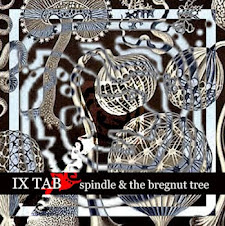
...well i was ridiculously excited about the cyberdalek mash-up (stoked by even more - okay equally - excited Lokikids) and inevitably felt a little disappointed...
That said, the sight of those daleks steamin' out the Jules Verne timelord prison ship (which I swear i've seen before, at Disneyland Paris, inside the Space Mountain ride - I'm sure at some meta-marketing level this is not accidental) was one of my favourite ever Doctor Who moments...
But but... they were defeated too quickly, too easily - a problem I have with too many of the Doctor Who stories - there doesn't seem to be enough effort (or thought) involved in overcoming a threat like the Daleks (though of course, they can't be defeated in a traditional - literal - sense because... oh see below)
I was sure that this world was going down and everyone (except Rose) was going to jump ship into the parallel world... after all, why have a doppelganger if you can't kill off the original?
Yeah, there is loss involved but the loss of Rose was predictably virtual and symbolic perhaps because Rose, unlike any other companion, has become integrated into the Doctor's psyche; she is super-ego, or perhaps part super-ego part Ego because often she acts as a rational counterpoint to, especially, this latest Doctor's pop-eyed excess.
(incidentally, this Doctor seems more 'real' to me, while Eccleston seemed transitional, a temporarily depressed state, a shellshocked war veteran which was already changing around the time of An Empty Child turning out okay - "just this once.. everybody lives...")
The fact that I preferred Eccleston to Tennant is perhaps aligned to the fact that I'm much more like Tennant and always wanted to be much more like Eccleston. Still trying...
So the Tennant Doctor series is full of chldish enthusiasm and the writers progressively ramp up the sexual tension only to reveal that there is much more than electrical crackle between the Doctor and Rose... Rose is partly responsible for healing the Doctor during the Eccleston series and now it's like she's a plaster that's fallen off (again, the child-like naure of the Doctor is evoked; kids love being injured don't they, the sight of blood, the accompanying medication and bandages - if one of my kids gets to have a plaster it's like they've been given a medal for living) - I guess we're all hoping there's some kind of hole remaining underneath, a wound that's always dressed but never heals...
But Rose can't die and the Daleks can't die because, well, it would hardly be original thinking to see that both Rose and the Daleks fail to exist independently of the Doctor.
The Daleks, in particular, as unconsciously projected fears has (probably) been discussed many times and this series makes their id(iocy) more obvious than ever... of course they were in that sphere (of course it's a sphere)... at the end of the last series we're even shown that they can be destroyed by thought (Rose as Psychoanalyst) or at least they can be made to disappear at will, even if their inevitable reawakening is a concomitant of this ability to repress them...
The Doctor is put in an Alchemical role, with Alchemy being seen in it's Jungian sense: as a precursor to psychoanalysis; the gold symbolising an individuation of sorts.
No suprise then that the cybermen can be killed by gold dust (or did I dream that) in earlier incarnations. Of course they can...
(those 'of course's are getting annoying aren't they? sorry about that...)
Still, the cybermen were put rightly into context - they are mere monsters, the savagery of their transformation irrelevant to their fear factor - we see they are inferior in every way, few creatures spur the Daleks into mockery and joshing... the humanoid form of the cybermen helps us understand this, they are too close to the vague sense of unease that humans feel about themselves, the symbols are too obvious: the gait, the hive-mind, the blank shark stare is too similar to a night on the Town - and much closer to citylife at night than, say, the Burial album ;).
The cybermen are too close to reality to represent, in Freudian terms a significant repression and so the fear they symbolise is hardly as fundamental as the fear the Daleks represent. Humans may fear the cybermen more because they will 'see' the fear they symbolise - but fear you can see is hardly fear at all.




















1 comment:
Not bad for a beginner - Skill B quite effective in places....
Just posted my effort....
Post a Comment